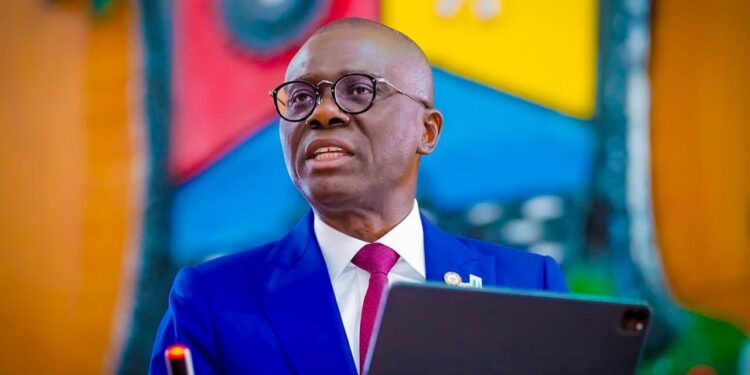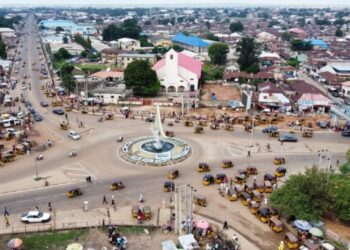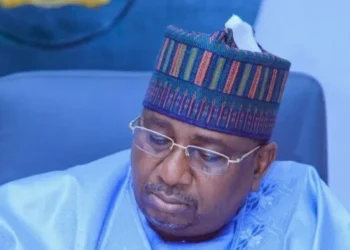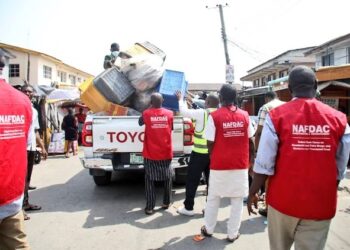The Lagos State Government has formalised an agreement with the Rural Electrification Agency (REA) to scale up renewable energy deployment and decentralised electricity generation across the state, as part of efforts to tackle persistent power challenges and stimulate economic growth.
The agreement was sealed during the Roundtable Meeting on Rural Electrification and Sustainable Energy Development, held on Monday at the Oriental Hotel, Victoria Island, Lagos.
The roundtable, organised by the Lagos State Ministry of Energy and Mineral Resources (MEMR), brought together key stakeholders in the energy sector to chart a sustainable path toward improved energy access and security.
Speaking at the event, Governor Babajide Sanwo-Olu—represented by Deputy Governor Dr. Obafemi Hamzat—reaffirmed his administration’s commitment to building a cleaner, safer, and more resilient energy grid for Lagos State.
Tackling power supply gaps through renewables
Governor Sanwo-Olu noted that unreliable power supply remains one of the greatest constraints facing households and businesses in Lagos and across Nigeria. He described the new partnership with the REA as a critical step toward bridging the gap through renewable energy technologies, particularly solar.
“Nigerians generate much power, but it is not widely distributed due to isolation. We have excess energy, but it is misdirected,” Sanwo-Olu said.
“There are around 4.5 million generators in Lagos. Many use 30 kVA or 50 kVA and avoid the public power supply,” he said.
He stressed that a planned, sustainable energy framework is essential for unlocking productivity, creating jobs, and fostering inclusive growth.
The governor highlighted that the Lagos State Government will work closely with the Renewable Energy Asset Management Company to ensure the long-term viability of implemented projects. He also emphasised the importance of community engagement, calling for active involvement of Community Development Associations (CDAs) and Community Development Committees (CDCs) in the energy rollout.
“These community stakeholders are pivotal in identifying specific local needs, ensuring proper planning, and enhancing project outcomes,” Sanwo-Olu stated.
He directed the Ministry of Energy and Mineral Resources to prioritise grassroots participation in the design and execution of rural electrification projects.
Unlocking new energy opportunities in Lagos
In his remarks, Mr. Biodun Ogunleye, the Commissioner for Energy and Mineral Resources, said the MoU marks a significant milestone in Lagos State’s journey toward energy transition. He noted that the project focuses on leveraging clean, sustainable energy sources to reduce dependence on fossil fuels and unlock new economic opportunities.
“We are entering a partnership with REA that will unlock a range of new opportunities. It will give Lagosians access to a stable, uninterrupted electricity supply,” Ogunleye said.
He added that the initiative would open up new markets for energy service providers, encourage innovation, and create new jobs in the state’s growing green economy.
MoU signing seals strategic intent
The highlight of the event was the signing of the Memorandum of Understanding (MoU) between the Lagos State Government and the REA. The agreement lays the foundation for expanding solar power generation and distribution infrastructure in underserved and off-grid communities throughout Lagos State.
According to the parties, the initiative will be executed through joint technical assessments, capacity-building, investment facilitation, and support for community-based energy cooperatives.
What you should know
The Lagos Economic Development Update (2025) report revealed that over 80 per cent of the Lagos population and businesses spend N5.3tn every year to power their generators to generate electricity for households and businesses due to the state’s severe energy deficit.
As of 2020, only 31 per cent of Lagos households had access to the national grid, leaving 69 percent to rely on generators and other alternative energy sources.





















